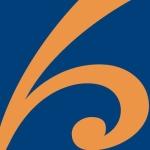National immunisation schedule for 2008
Health Minister Pete Hodgson has confirmed the National Immunisation Schedule for 2008.
New Zealand's immunisation schedule is reviewed every two years to make sure New Zealanders receive safe and effective vaccines.
The key change from June 2008 is the addition of the pneumococcal vaccine, Prevenar, for all babies born from 1 January 2008.
Dr Alison Roberts, acting manager National Immunisation Programme, says the addition of Prevenar to the schedule means that from June 1 next year all New Zealand babies will have access to free immunisations which protect them against 11 serious diseases.
"From 1 June 2008 all babies starting their routine immunisations at six weeks of age will be eligible to receive the pneumococcal vaccine. Babies born between 1 January 2008 and the start of the programme in June will also be able to receive the free vaccine from their family doctor or practice nurse, from June 2008.''
Dr Roberts says all babies are at risk of severe pneumococcal disease, which can cause meningitis, blood poisoning and pneumonia.
"Pneumococcal disease is different to meningococcal B disease and babies will need both vaccinations to protect against these diseases. To ensure early protection, babies need to receive all their immunisations at the recommended times,'' she says.
The pneumococcal vaccine is used by many countries worldwide as part of their infant immunisation schedules.
Dr Roberts says at the 6 week, 3 and 5 month visits babies will receive three injections. One vaccine will protect against six diseases (diphtheria, tetanus, whooping cough, polio, hepatitis B and Haemophilus influenzae type b). Babies will also receive the meningococcal B vaccine and the pneumococcal vaccine.
"Parents do not need to worry about their baby receiving vaccines against eight diseases at one time as a baby's immune system responds well to multiple vaccines at one visit.The Ministry's advice is that it is safe and effective for babies to receive vaccines to protect against eight diseases at the same time.''
"Some babies may have redness or swelling at the injection site after the immunisation. These are expected reactions and can occur after immunisation with any vaccine. Some babies may also experience a temporary fever.''
In addition, children who turn 11 in 2008 will receive a vaccine to boost their immunity to diphtheria, tetanus and whooping cough. Earlier changes to the schedule mean these children have already received the recommended four doses of polio vaccine. As a result, they will no longer require the polio vaccine at age 11.
Dr Roberts says providers and parents will have access to a range of information about the schedule change from January next year.
